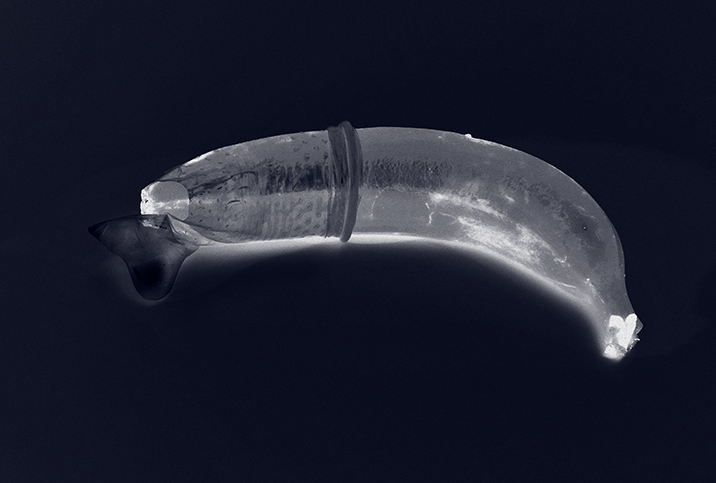Penile Cancer Is Rare, But One STI Accounts for Most Diagnoses

If you have a penis, your chances of getting diagnosed with penile cancer are low. Penile cancer accounts for less than 1 percent of cancers in men in the United States. However, the risk of developing penile cancer can increase with human papillomavirus (HPV) infection. An estimated 63 percent of penile cancer cases are attributable to HPV each year, according to the Centers for Disease Control and Prevention (CDC).
HPV is a common sexually transmitted infection (STI). Most men who get HPV won't go on to develop cancer, but there isn't a clear number associated with how much your risk of penile cancer increases if you've had the infection. S. Adam Ramin, M.D., a urologist and the medical director of Urology Cancer Specialists in Los Angeles, estimates it's only about a 5 percent increased risk.
However, the tricky thing with HPV is many people can be infected with the virus and not even realize it. In fact, the CDC notes HPV is so prevalent that virtually all sexually active adults will have an HPV infection at some point.
Unfortunately, once you've had HPV—even if your body naturally clears the virus on its own—the effects can linger in your body for years and increase your risk of many types of cancer, including throat, anal, cervical, vaginal, vulvar and penile.
The link between HPV and penile cancer
Two known strains, HPV-16 and HPV-18, are most closely associated with penile cancer, with HPV-16 causing more cases, according to a 2017 study in the journal Translational Andrology and Urology.
But how does HPV lead to penile cancer?
Brian Norouzi, M.D., a board-certified urologist at Providence St. Joseph Hospital in Orange County, California, said that while one clear explanation hasn't been found, it's thought that penile cancer can arise from a perfect storm of conditions, including genetic abnormalities or acquired changes in the immune system, along with an HPV infection that triggers cancer cells to grow.
One theory suggests that the HPV virus upregulated some genes responsible for cancer, Ramin added.
"There may be some sort of a connection between HPV and upregulation of these genes that then can cause initially precancerous-type lesions, and then eventually cause cancer," he said.
In other words, somewhere along the line, along with other factors such as a genetic predisposition or perhaps environmental conditions, HPV could "turn on" the genes for cancer.
How to decrease your risk of penile cancer from HPV
It bears repeating, so we'll say it one more time: While HPV infection and penile cancer are connected, the risk of developing penile cancer is still very low overall.
"Just getting HPV doesn't mean one's risk of getting penile cancer is high," Norouzi said.
But there is definitely a clear link between the virus and penile cancer in people who develop the disease. For instance, Norouzi explained it's been shown that men with more invasive and aggressive types of penile cancer are more likely to have HPV-induced cancer. So if you've had HPV—or are likely to encounter HPV at some point—and want to reduce your risk of penile cancer, here are three steps you can take:
1. Get tested
Consider regular screening for STIs, especially if you're routinely engaging in unprotected sex. Although there is no treatment for HPV, knowing you have it could help you undergo important screenings down the road and know your risk for developing certain types of cancer.
2. Get the HPV vaccine
Norouzi explained that while there isn't any evidence to show the HPV vaccine can help reduce the risk of penile cancer if you've already been infected with HPV, vaccination can be helpful if received before exposure. Plus, it can help reduce the risk of other HPV-associated cancers, such as oral cancer.
"It has been controversial to give the HPV vaccine in the past to prevent male HPV infections and cancer because of such a low incidence of penile cancer in general," Norouzi said. "But now, with the vaccine being available and shown to be relatively safe, and with the additional oral cancer risk associated with HPV, I would recommend the vaccine to appropriate-aged young adults at high risk for exposure."
Ramin further clarified that since the overall risk of penile cancer is so low, authorities haven't always recommended that all men get the HPV vaccine, so talk to your doctor about receiving it. However, you should elect to get the vaccine if you:
- Have multiple sexual partners
- Are uncircumcised
- Are having unprotected sex
The vaccine can provide protection not only for you, but also for future partners. For instance, if you have female sexual partners, getting an HPV vaccination can help decrease the woman's risk of HPV-associated cancer, particularly cervical cancer.
"HPV is the number-one cause of cervical cancer in women, and the driving force to vaccinate all men is not to prevent penile cancer, but to prevent transmission of HPV to women who are then at a much higher chance of developing cervical cancer," Ramin said.
And the same goes for women: If more women received the HPV vaccine, the risk of spreading HPV to male partners would decline.
"If a partner had the vaccine, they would be less likely to transmit the virus and lower that man's risk of cancer," Norouzi added.
3. Perform self-exams on your penis
The most important step you should take to reduce your risk of penile cancer, with or without an HPV infection, is to perform regular self-screenings, Ramin said. In general, this is a good practice to assess any potential problems that could warrant a trip to your doctor for a checkup.
First, it's important to know what's "normal" for your penis. Ramin advises men to regularly assess their penis and look for:
- Warts
- Small lesions developing under the skin
- Areas that look unusual
If anything looks abnormal, seek care immediately, he said. Always remember to take care of your sexual health by making wise choices about protection, prevention and screening. An HPV infection certainly doesn't mean you'll wind up with penile cancer, but the more precautions you take, the better off you'll likely be.




















